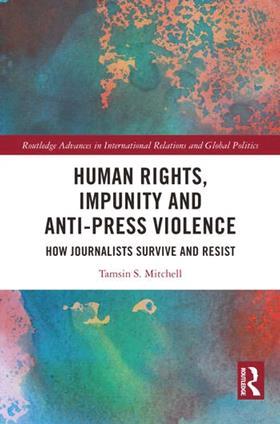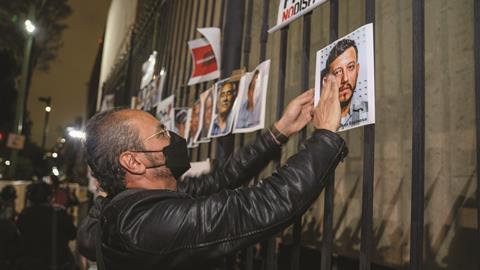Human Rights, Impunity and Anti-Press Violence: How Journalists Survive and Resist
Tamsin S. Mitchell
£145, Routledge
★★★✩✩
This book offers a fascinating exploration and comparative study of the different ways in which journalists in Mexico and Honduras respond to impunity for attacks against them. The bravery and resilience of journalists is at the front and centre of the work, which is something that stays with the reader long after the book is finished.
The work explores journalists as promoters of human rights, often at the expense of their own personal safety. Indeed, the examples of impunity which follow an attack or murder of a journalist in both jurisdictions are shocking. The commentary around the prevalence of state actors being implicated in such attacks makes for very uncomfortable reading. This also includes their involvement in the targeted and illegal surveillance of the mobile phones of journalists. It is widely considered that those most at risk tend to be independent news reporters and investigative journalists who focus on controversial issues, such as corruption and politics, security and justice, human rights violations and environmental issues.

The book’s exploration of the ways in which legal systems can be used to frustrate free speech, including through the use of strategic lawsuits against public participation (SLAPPs), resonates with the reader, echoing the use of SLAPPs to intimidate and silence journalists in the UK.
The author offers an interesting examination of the strategies journalists employ for security and protection. It was sad to see that one such measure is self-censorship, which, the book explains, is a common form of self-protection in both Mexico and Honduras. This is particularly so where an investigation involved links with state authorities. Interestingly, journalists in both Mexico and Honduras often favoured reporting the threats and attacks they suffered as part of their journalism, both to raise public awareness and as a form of self-protection to deter further incidents and trigger condemnation and action.
The book is well-written and extensively referenced, providing valuable insight into the lived experience of journalists operating within Mexico and Honduras.
Elizabeth Wiggin is a senior associate at Wiggin, London
































No comments yet